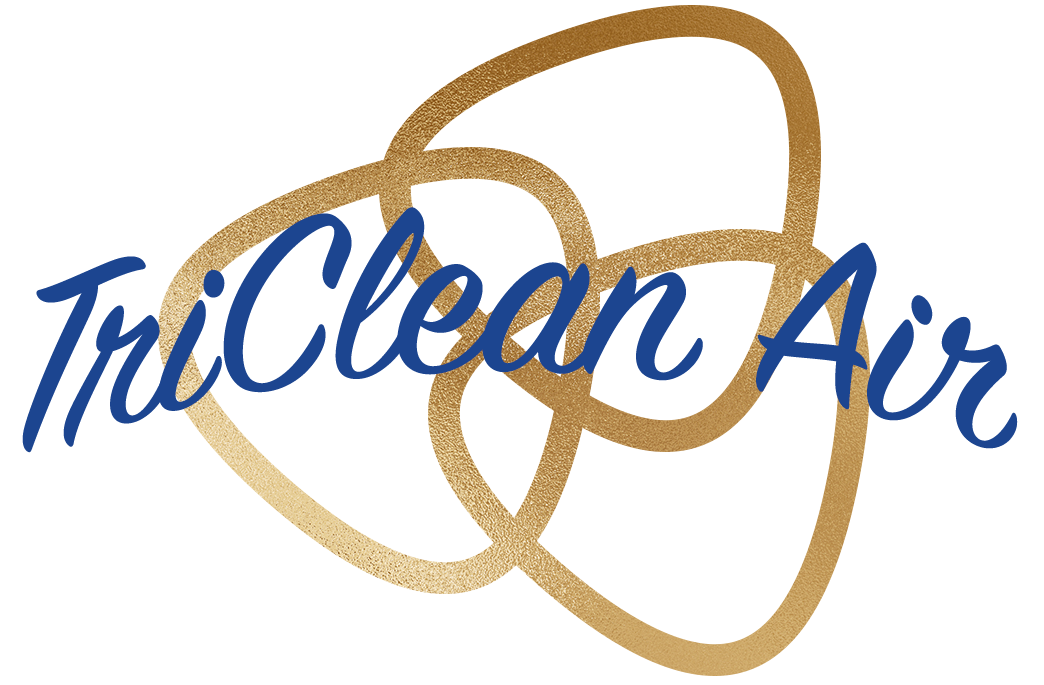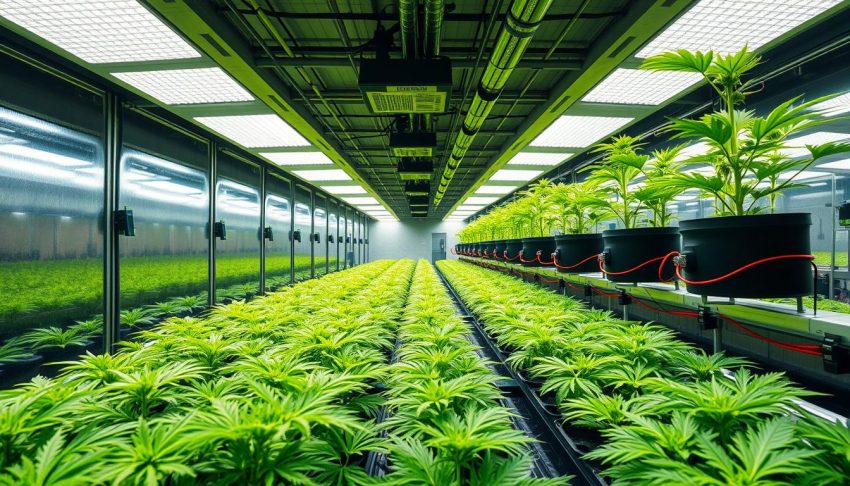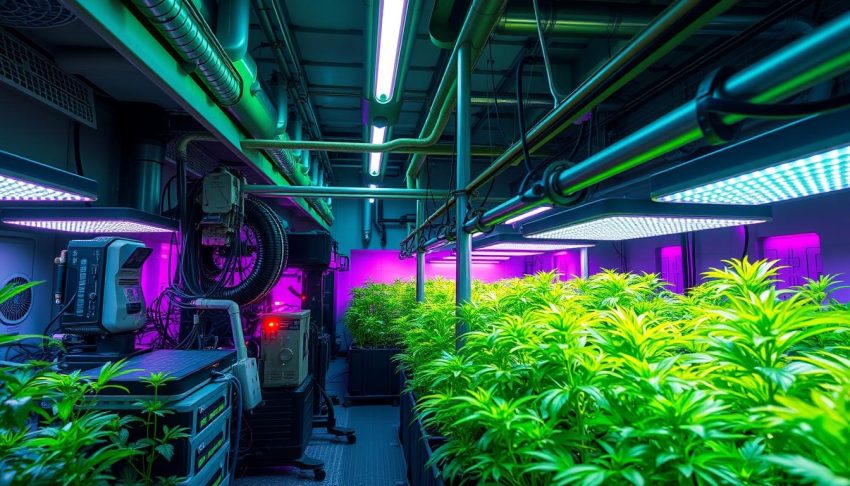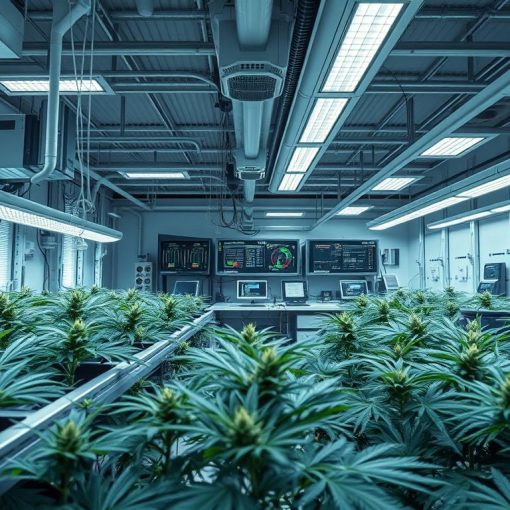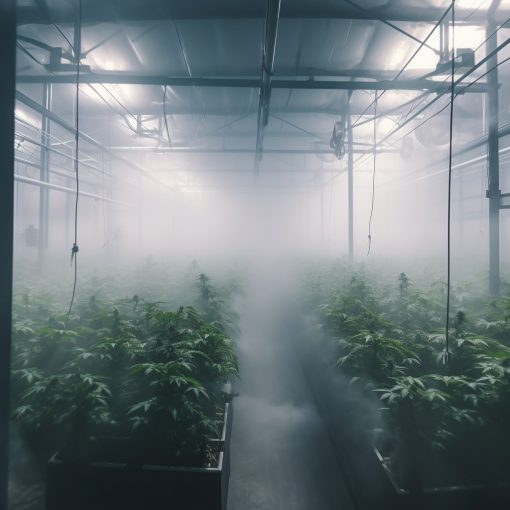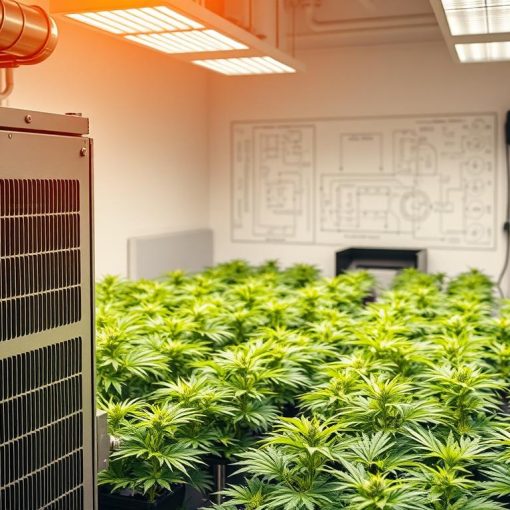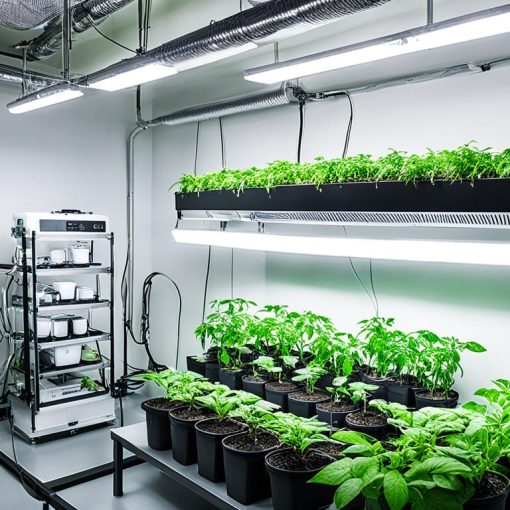Growing plants for commercial cannabis or horticulture needs a well-designed grow facility. The right equipment is key, and design conditions play a big role. Things like temperature, humidity, lighting, and irrigation affect how well the equipment works.
TriCleanAir is a top name in grow facility solutions. They know how important design conditions are for equipment to work well. By looking at each grow space’s unique needs, they suggest the best HVAC, lighting, and irrigation gear. This helps growers get the most from their space, save on energy, and grow healthy plants.
Key Takeaways
- Design conditions, like temperature, humidity, and lighting, greatly affect grow facility equipment’s performance.
- Choosing, sizing, and optimizing HVAC, lighting, and irrigation systems is key for better efficiency and yield.
- TriCleanAir’s expertise in reviewing design conditions and offering custom equipment solutions helps growers meet their goals.
- Knowing how design conditions and equipment performance are linked is vital for a successful grow operation.
- Choosing the right equipment for your grow facility’s design can greatly improve energy use and overall success.
Understanding Design Conditions for Grow Facilities
Creating a successful grow facility means knowing how different environmental factors affect key equipment. Things like temperature, humidity, air flow, and lighting are key to making the best grow environment. Each factor plays a big role in how well plants grow and how efficient the facility is.
Environmental Factors Affecting Equipment Performance
The grow facility design conditions, like temperature, humidity, and air flow, greatly affect HVAC, lighting, and irrigation systems. High temperatures and humidity can make HVAC systems work harder, use more energy, and even break down. Bad lighting or watering can hurt plant growth and lower yields.
Importance of Proper Sizing and Selection
It’s crucial to make sure all grow facility equipment fits the specific design conditions. The right HVAC, lighting, and irrigation systems help save energy, cut down on maintenance, and support healthy plant growth. By looking at the facility’s size, environment, and plant needs, designers can create a custom solution. This approach boosts performance and supports long-term sustainability.
| Environmental Factor | Impact on Equipment Performance | Optimal Conditions |
|---|---|---|
| Temperature | Affects HVAC system efficiency and plant growth | 70-85°F (21-29°C) |
| Humidity | Influences HVAC system load and plant transpiration | 40-60% relative humidity |
| Air Flow | Impacts temperature and humidity distribution, as well as plant health | 0.5-1.5 m/s air velocity |
| Lighting | Determines plant growth and development | Varies by plant type and growth stage |
Knowing the key environmental factors and designing the grow facility with the right equipment sizing and selection helps growers create a great place for plants to grow. This approach supports both plant health and energy efficiency.
Temperature Control Systems for Grow Rooms
Keeping the right temperature in a grow room is key for growing cannabis or other plants well. HVAC units are essential for this. They control the temperature, humidity, and air flow. This helps plants grow strong and healthy.
Grow room temperature control depends a lot on the grow room’s setup. The size, number of lights, and the local weather affect the system’s work. These factors help decide how much heat the system needs to handle.
Choosing the right HVAC systems is important for keeping the grow room just right for plants. If the system is too small, it won’t keep the temperature steady. If it’s too big, it wastes energy and costs more to run.
| Key Factors for Effective Temperature Control | Importance |
|---|---|
| Grow Room Size | Determines the required capacity of the HVAC system to maintain the desired temperature and humidity levels. |
| Heat-Generating Equipment | Factors in the thermal load from lighting, ballasts, and other grow room equipment to ensure adequate cooling capacity. |
| Ambient Climate Conditions | Considers the local weather patterns and outdoor temperatures to optimize the HVAC system’s heating and cooling capabilities. |
By looking at these factors and picking the right systems, grow facilities can create a perfect space for plants. Keeping these systems in good shape is also key for them to work well over time.
Impact of Design Conditions on Grow Facility Equipment Performance
It’s vital to make sure grow facility equipment works well to help plants grow strong, produce more, and use less energy. Things like temperature, humidity, and air flow in the grow space affect how well systems like HVAC, lighting, and irrigation work.
Effects on HVAC System Efficiency
Keeping the right temperature and humidity is key for plants to thrive. If these levels are off, HVAC systems have to work too hard. This means they use more energy, cost more to run, and might not work as well.
Thinking about the environment during design helps make sure HVAC systems run smoothly.
Consequences for Lighting and Irrigation Systems
Lighting and irrigation systems in grow facilities rely on the right conditions too. Bad temperature, humidity, or air flow can hurt how well these systems work. For instance, wrong lighting can make plants grow poorly or produce less. And if irrigation isn’t right, plants might not get enough water or nutrients.
Understanding how design affects grow facility equipment helps growers make better choices. This leads to better system performance, saves energy, and improves growing results.
| Design Condition | Impact on HVAC Efficiency | Impact on Lighting and Irrigation |
|---|---|---|
| Temperature | Increased energy consumption to maintain ideal temperature | Potential for suboptimal plant growth and yields |
| Humidity | Reduced system effectiveness and higher operating costs | Implications for plant health and irrigation efficacy |
| Air Flow | Challenges in maintaining proper climate control | Uneven distribution of light and water resources |
Optimizing Equipment for Specific Design Conditions
Creating the perfect grow facility equipment setup is not a one-size-fits-all task. It’s key to think about the unique environmental conditions and climate factors that affect your operation. Customized solutions help you adjust your HVAC, lighting, and irrigation systems to your grow facility’s specific needs.
Customized Solutions for Different Climates
Every climate brings its own challenges for grow facility equipment optimization. A grow operation in a hot, dry area will need different solutions than one in a cool, damp climate. With the help of skilled designers, you can make sure your equipment fits your local conditions. This might mean better cooling and drying or special heating and insulation.
- Optimize HVAC systems for precise temperature and humidity control
- Tailor lighting systems to provide the perfect spectrum and intensity for your crops
- Implement irrigation systems designed for efficient water usage and nutrient delivery
The goal is to make all these systems work together smoothly. This creates a cohesive and highly efficient grow facility that can adjust to your operation’s changing needs. With the right customized solutions, you can fully use your grow facility’s potential. This leads to amazing yields and quality.
“Optimizing grow facility equipment for specific design conditions is essential for maximizing efficiency and yield. By working with experienced designers, you can create a tailored setup that perfectly matches your local climate and environmental factors.”
Energy Efficiency Considerations
The grow facility industry is always changing, and improving energy efficiency is a big focus. By making equipment work better and managing energy costs, grow facilities can lessen their environmental impact. They can also make more money. This is why grow facility energy efficiency is so important.
Balancing Performance and Energy Costs
Finding the right balance between how well equipment works and how much energy it uses is tricky. Grow facilities need to look at their equipment performance and the energy costs of their work. They should use the newest energy-saving tech, smart controls, and green energy solutions.
One good way to save energy is to buy energy-efficient equipment made just for grow facilities. These systems work as well or better than older ones but use a lot less energy. They also cut down on operational costs. Plus, smart controls can adjust equipment settings for the best efficiency and sustainability during the grow cycle.
Adding renewable energy like solar panels or wind turbines can make a grow facility even more energy efficient. It also means using less electricity from the grid. This is good for the planet and helps protect against changes in energy prices. It makes energy costs more stable and predictable.
By focusing on energy efficiency, grow facilities can make big strides in sustainability. This helps the environment, lowers costs, and makes the business more stable for the future.
Preventive Maintenance and Monitoring
Keeping your grow facility equipment in top shape is key to a successful operation. Regular maintenance and constant monitoring help keep your HVAC, lighting, and irrigation systems running well. By fixing problems early, you can extend your equipment’s life and avoid expensive repairs that could stop your grow cycle.
A detailed maintenance plan is the first step to keeping your equipment running smoothly. This plan should include regular checks, cleanings, and updates of important parts, and replacing old ones on time. Doing these tasks helps you spot and fix issues early, keeping your systems efficient and saving energy.
Monitoring your equipment’s performance is also crucial. By tracking things like temperature, humidity, light levels, and water flow, you can catch any problems early. This lets you fix them quickly, keeping your plants healthy and avoiding big equipment failures.
TriCleanAir offers a wide range of maintenance and monitoring services for your grow facility. Our skilled technicians can help create a maintenance plan just for you, making sure your HVAC, lighting, and irrigation systems work their best. We also have tools to monitor your facility in real-time, giving you the info you need to make smart choices and improve your grow operation.
| Maintenance Task | Frequency | Benefits |
|---|---|---|
| Air filter replacement | Quarterly | Improves HVAC efficiency and air quality |
| Lighting system inspection | Monthly | Ensures optimal light intensity and distribution |
| Irrigation system calibration | Bi-monthly | Optimizes water usage and plant health |
| Ductwork cleaning | Annually | Enhances HVAC performance and air circulation |
Putting a focus on preventive maintenance and constant monitoring can make your grow facility equipment work its best. Working with TriCleanAir, we can create a maintenance and monitoring plan that fits your specific needs.
Case Studies: Success Stories from the Field
Designing a grow facility can be tough, but success stories offer great insights. We’ll look at a few cases that show how design affects equipment and how to pick the best equipment.
Optimizing Equipment for Optimal Performance
The team at TriCleanAir knew how important the local climate was for equipment. They studied the environment to pick the right HVAC, lighting, and irrigation systems. This made their grow facility very efficient and produce top-quality yields, even in tough weather.
Their focus on details and performance optimization made TriCleanAir a top choice for grow facility case studies.
Achieving Sustainable Growth in a Challenging Climate
A cannabis grower in the Pacific Northwest had to deal with unpredictable temperatures and high humidity. They worked with designers to pick equipment that fit their location’s needs.
This grow facility produced great yields and used less energy, showing the perks of equipment performance optimization in tough climates.
These grow facility case studies highlight the role of understanding design conditions. With the right designers and equipment, growers can beat environmental challenges and succeed.
Working with Experienced Grow Room Designers
When designing a grow facility, working with experts is key. These pros know how to pick, size, and set up equipment for the best performance.
Grow room designers have lots of experience from working with different grow operations. They offer great advice on the design conditions that make your equipment work well. This ensures every piece fits your needs perfectly.
“The right designer can mean the difference between a high-performing grow facility and one that struggles to meet your production goals.”
With grow facility design experts, you get a setup that works great for your grow operation. They help with equipment selection, putting everything together, and keeping an eye on performance. This makes your grow space thrive.
If you’re starting a new grow facility or improving an old one, grow room designers are a big help. Their knowledge and experience make sure your equipment fits your design conditions well. This leads to better performance optimization for your grow operation.
Conclusion
The design of a grow facility greatly affects how well the equipment works. Knowing about temperature, humidity, and lighting helps growers pick the right equipment. This makes the operation more productive and sustainable, cuts down on energy costs, and reduces harm to the environment.
TriCleanAir is a top maker of grow facility equipment. They offer a wide range of solutions for different facility needs. By working with TriCleanAir, growers can make sure their equipment works best and saves energy. With help from skilled designers, growers can use the latest knowledge to make a great place for growing plants.
The cannabis and horticulture fields are always changing. Keeping up with design conditions and optimizing equipment is key. By staying updated and taking action, growers can stay ahead, improve their work, and help the industry grow.
